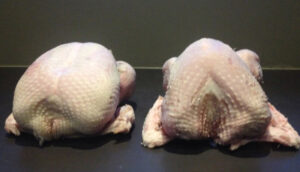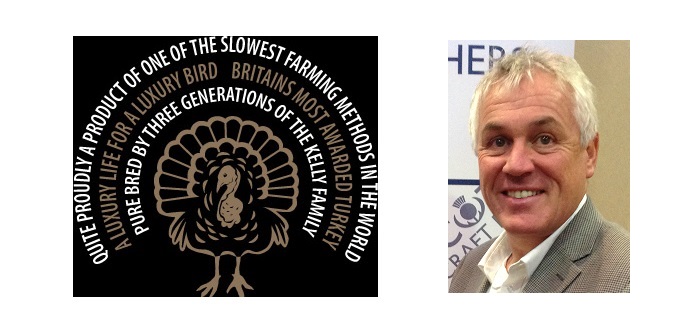Turkey producer, Paul Kelly, has issued a pre-Christmas message to butchers and retail customers that he believes in rearing turkeys to the age when they are “perfect to eat” rather than just the “right weight”.
Contending that there is a vast difference in the flavour and eating quality of traditional turkeys reared to 22 weeks, compared to cheaper birds from large strain hens processed when they are only 12 weeks old, Mr Kelly, managing director of Kelly Turkeys, said: “The older the bird, the better the experience.”
“At 12 weeks of age turkeys are only at the third stage of physiological development; skeletal growth,” he stated in his latest company newsletter. “The only muscle laid down is just enough to move the skeleton, but there is no intramuscular fat or carcase fat, which is laid down later.”
Making his point alongside announcing a “small increase” in prices, he said his company’s KellyBronze turkey is reared to an average of 26 weeks, a fact which makes it “super mature”.
He also reported having analysed the yield from a 22-week-old turkey against that from a 12-week-old bird, both of which were reared to 4.7 kg (10.4 lb).

“The carcase shape says it all,” he said. “In this instance there was 48% more breast meat on our SuperMini. So, while our turkey may cost twice as much per kg as a supermarket bird, once you take the number of servings into account, it is only around 25% more expensive.
“In addition, if a customer comes away from Christmas lunch really satisfied, then the extra money provides great value.”
As for this year’s price rise, he added that Kelly Turkeys’ method of farming and hand finishing was very labour intensive.
“The living wage has had a big impact on our casual labour costs,” said Mr Kelly (pictured above), “while the increase in feed costs, along with other inflation creeping up, means we have had to increase prices by 3%.”


